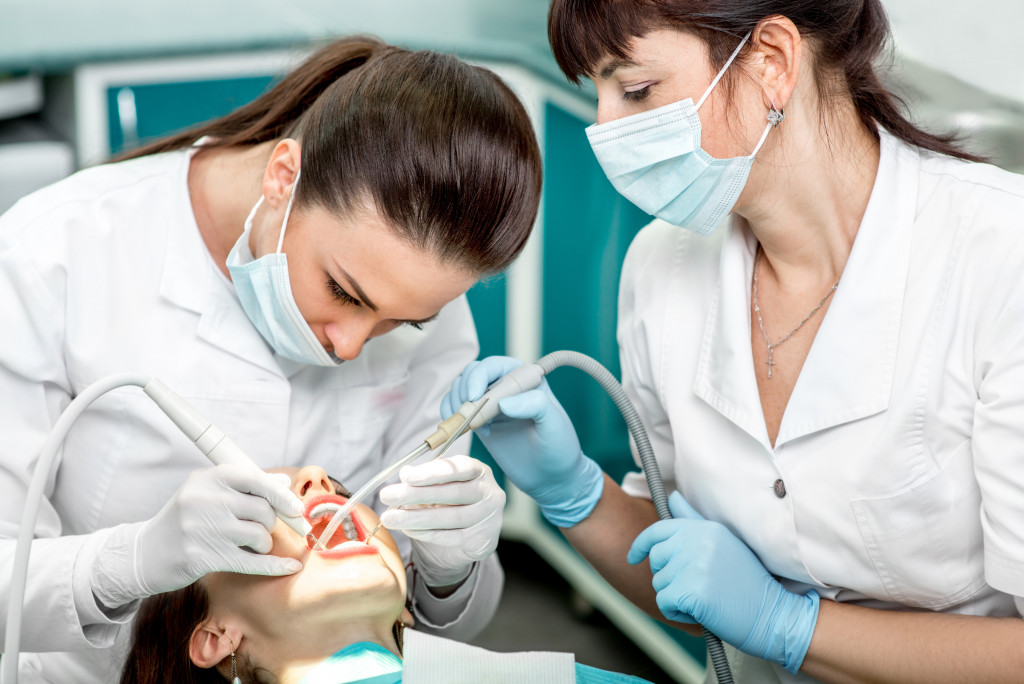Disclaimer: The Lifestyle Elf. This site provides fashion and lifestyle content for informational purposes only.
- Physicals involve blood pressure checks, weight/height checks, listening to the heart/lungs and checking reflexes.
- Dental exams include a visual examination, x-rays and checking for decay, fractures or other damage.
- Eye exams test for glaucoma and cataracts, check vision and refraction levels, adjust eye pressure and evaluate eye health.
- Hearing exams examine the health of the ears and look for any signs of hearing loss or blockages.
- STD screenings are important for both men and women to detect potential infections or diseases and provide treatment.
When it comes to maintaining a healthy lifestyle, regular health checkups are essential. From childhood to adulthood, annual health exams are an important part of staying on top of your overall well-being and managing any potential illnesses or conditions that may arise. This guide will discuss the five annual health exams everyone should consider and what they entail.
1. Physical Exam

Your annual physical is one of the best ways to detect any early signs of health problems. During this exam, your doctor will review your medical history and ask questions about any existing or potential issues you’re experiencing. You can also bring up any concerns or questions so your doctor can address them.
Here are common things included in a physical exam:
Blood pressure check
Your doctor will measure your blood pressure, the amount of pressure in your arteries when your heart beats and rests. High or low numbers indicate potential health issues such as high cholesterol, diabetes, and kidney disease.
Weight and height check
Your doctor may also take your weight and height measurements to determine if you’re in a healthy weight range. This is important because being overweight or underweight can increase your risk of heart disease and other chronic diseases.
Listening to your heart and lungs
Your doctor will listen to your heart with a stethoscope to identify any abnormal sounds that may indicate potential problems, such as heart murmurs, arrhythmias, or valve problems. They will also listen to your lungs to identify potential respiratory issues such as asthma or COPD.
Checking your reflexes
Your doctor may also check your reflexes to identify any problems with your nervous system or muscles. This includes testing your arm, leg, and facial muscle strength and testing your response time when prompted by a light touch or sound.
2. Dental Exam

Visiting a reliable dentist’s office for an annual dental exam is important to ensure good oral health. During this exam, the dentist will perform several tests to check for any signs of decay, fractures, or other damage. It should involve a visual examination, x-rays and checking your tongue and throat for abnormalities.
The visual exam consists of a head and neck evaluation, which includes checking your lymph nodes, temporomandibular joint (TMJ), salivary glands, and soft tissues in the mouth. Your dentist may also examine your teeth for signs of decay, cracking, wear, or other damage.
During the exam, your dentist may take additional digital photos to supplement traditional x-rays. These allow the dentist better to detect decay, fractures, and other problems. Your dentist will also examine your gums for signs of periodontal diseases, such as redness or swelling.
3. Eye Exam
Your vision is one of the most important aspects of your overall health, so you must get regular eye exams. During an exam, your doctor will test for conditions like glaucoma and cataracts, check your vision and refraction levels, and measure the pressure inside your eye.
They may also check the health of your eyes by dilating them to get a better look at the internal structures. Depending on what is found, you may need treatments or medications to help keep your vision healthy. An eye exam is essential for maintaining good eye health and should be done regularly as per your doctor’s recommendation.
4. Hearing Exam
Your hearing is also crucial to monitor and maintain throughout life. During a hearing exam, your doctor will examine the health of your ears and check for any signs of hearing loss or blockages. Your doctor can also provide tips on ways to protect your hearing, such as wearing earplugs when attending loud events or avoiding certain sounds that could be damaging.
5. STD Screening
Both men and women need to get regular STD screenings. While many STDs can be completely symptomless, they can still lead to long-term health problems if not detected early. During the screening, your doctor will check for any signs of infection or disease and provide treatment options if needed. If you’re sexually active, it’s recommended that you get screened every 6 to 12 months.
Final Thoughts
Regular checkups are vital for staying healthy and catching any potential issues before they become severe. Scheduling these five exams annually can help ensure your well-being and provide peace of mind knowing that you’re doing the best for your health. So, don’t forget to make those appointments and take control of your own health.

